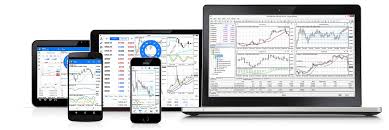When it comes to trading Contracts for Difference (CFDs), choosing the right broker is crucial. The broker you select will significantly influence your trading experience, whether you’re a day trader, swing trader, or long-term investor. This blog provides tips and insights to help you find a cfd trading that aligns with your unique trading style.
Understand Your Trading Style
Before exploring brokers, it’s essential to have clarity about your trading style. Are you someone who thrives on quick trades during market fluctuations, or do you prefer holding positions over a longer period? Your approach determines the tools, fees, and features you’ll need in a broker.
For short-term traders, factors like fast execution speeds, advanced charting tools, and low spreads are essential. Meanwhile, long-term traders may prioritize overnight fees, platform stability, and comprehensive research tools.
Evaluate Trading Platforms and Tools
The trading platform is your primary workspace, so it must meet your expectations in terms of usability and functionality.
What to look for in a trading platform:
• Ease of use: Is the interface intuitive and user-friendly?
• Charting tools: Does it offer advanced charting options and technical indicators?
• Customizability: Can you tailor the platform to suit your trading strategy?
• Execution speed: Does it execute trades promptly during high market volatility?
Some brokers also provide access to demo accounts, allowing you to test their platforms without risking real money. This is an excellent way to gauge if a platform fits your needs before committing.
Assess Available Asset Classes
While focusing on CFDs, consider the range of asset classes offered. Whether you’re trading indices, forex, commodities, or stocks, the ability to diversify your portfolio is invaluable.
A broker with a comprehensive selection of markets enables you to explore new opportunities while adhering to your strategy. Having access to a wide range of instruments ensures that your trading approach won’t be limited by a narrow selection.
Compare Trading Fees and Costs
Trading fees can quickly add up, especially for active traders. It’s important to review the cost structure of potential brokers. Key costs to examine include:
• Spreads (the difference between buy and sell prices)
• Commissions (a flat or percentage-based fee on trades)
• Overnight fees (costs charged for holding positions overnight)
Look for a broker that strikes a balance between competitive pricing and quality services. Remember, the cheapest option isn’t always the best if it compromises on execution or reliability.
Prioritize Customer Support
Having access to reliable customer support can save you from potential headaches down the road. Whether you encounter technical issues or need help navigating the platform, responsive and knowledgeable customer service can make a world of difference.
What to check for:
• Availability of multiple communication channels (live chat, email, phone)
• Office hours that match your trading activity
• Language options for global traders
Research Educational Resources
Trading CFDs requires a deep understanding of market trends, strategies, and risk management. A broker that provides quality educational resources can add value to traders, especially those still honing their skills.
Look for:
• Webinars and video tutorials
• Market analysis and expert insights
• Guides on using the trading platform effectively
Final Thoughts
Finding the right CFD broker isn’t a decision to rush. Investing time in research and self-reflection about your trading preferences will result in a choice that enhances your trading experience. Evaluate each broker on the basis of platform quality, fees, customer support, and educational tools to ensure they cater to your trading style.
How to Choose the Right CFD Broker for Your Trading Style
